Revisiting Global Generation’s History - 2020
This was the year when the world turned upside down. We were grateful for our gardens, our open fires and most of all for the wayfinding spirit of our team and the readiness of our participants, which all combined to help us find a gentle path through the uncertainties and challenges of the COVID-19 pandemic. As one of the Generators wrote:
“Our life has changed, waking up to something new that has never happened before, new experiences that teach us new things and I am scared. Not touching my face is one of the hardest things to do. Numbers to read everyday on cases and deaths. BUT when I walk out to have some fresh air and the roads are empty, it makes me feel peaceful. Having a garden is my salvation. Even a small patio in these times is so important. I feel lucky.”
— Ana
The team worked online, we worked outdoors, we produced audio pieces and books and magazines and we managed to stay open for business throughout it all. Whilst knowing that nothing would ever be the same, and that what we planned for would need to be adapted, the future became more real. We thought long and large about the kind of future we wanted to help create, a socially just future in which people as well as plants and animals are supported to flourish and grow. We thought about the ways in which we needed to develop and equity and inclusion became an important through line for our year.
At the start of 2020 we had only recently moved the whole team into the Story Garden, which had been live from the get go. Despite the fact that children’s workshops and community events had been happening there for more than six months there was still a lot to do in the garden which took a web of relationships. The week before the first lockdown, Martina - Global Generation’s Community Build Manager - and I stood in the pouring rain peering through the heras fencing at our nearly completed wooden roundhouse; beautiful and somewhat unbelievable that it had happened at all. Martina commented that this was the kind of project that would never be signed off, if one knew in advance all the steps it would take to complete. What began as a two week participatory project with a large group of architectural students from the University of the Arts, was completed over five more weeks by Lowery’s, one of the construction contractors who extended their help across the whole garden. I thought about the toilets, the electrics, the plumbing and the outdoor kitchen. These were areas in the Story Garden that had been completed and in some cases rescued by the Skansa supply chain - Lowery’s, Woodlands, McCain, Atkins and Arup along with additional contributions by other unrelated construction companies like Gouldris and Waites. We had many things to be grateful for. The garden was now the expression of a huge joint venture.
Meanwhile not far away the remains of the old Skip Garden waited ready to be claimed. At a community meeting a Kentish Town neighbour, Jo Macrae spoke up, “I like the idea of using Skips to form parklets on Leighton Road.” A nod from Georgia Gould, the leader of the council was all it took. A few weeks later two of the Skip Garden skips were delivered to the side of the road, to be loved and gardened by local residents; a perfect legacy for the Skip Garden.
More Skips were delivered to Canada Water to become the first steps of Global Generation’s presence in the public realm. Passers-by mentioned how they loved waiting for the foxgloves to bloom, and how great it was to see old skips transformed.
Not only are we taking to the streets we are taking to the canal. Together with a group of local young people we began the first stage of a collaborative design process for a floating garden …a still to be named garden on a barge which will be established this year. The group worked with Jan Kattein Architects to think about the different stakeholders involved and what ‘inclusive design’ could be like and they made an amazing 1:20 model.
During the first lockdown the Story Garden was closed to the public. Many of our staff were furloughed and engaged in volunteering opportunities in their own neighbourhoods. A small team worked remotely and in small numbers in the gardens. They put in new food growing beds and increased the production of quick turn-around veg and salad crops. The seeds that were sown in the hundreds and thousands over the spring grew profusely in the summer heatwave and were harvested and delivered next door to the Living Centre where the Mobile Foodbank operated, run by the incredible Rasheeda and Sonia of Urban Community Projects. Meanwhile across the river in the Paper Garden a similar garden take over was happening covering even more of the car park, with produce being delivered to schools and local community group Time and Talents.
With our usual structures disrupted there was a lot of self-organising and taking on of new roles amongst the GG team, revealing unexpected talents that were not so visible before. One of the fruits of this was the Stay at Home Garden, an online activity pack which brought out the ‘Global’ in our name as we received positive responses from our friends around the world.
During the year we became accustomed to seeing the Generators via a screen and a Zoom call. As Emma from the Paper Garden described: “We explored things that we possibly would not have touched upon in the garden. We dived deeply into race, migration, and privilege, asking important questions about how our society works and how we can spark change. We cooked healthy food, separately but together. We investigated plants that grow through the cracks in our city and the BIPOC activists that fight powerfully for all living things…and then we opened the garden to the young people once again. If I listened hard enough, I could hear the excitement of the plants mixing with the chattering of the Generators. We discussed many things, including how we are so lucky to have an outside space to be present together in, and how much the garden had changed.”
“Being here really relaxed me. Being back in the Paper Garden was like a break from my life. When I’m here I feel calm and big questions get settled. I love being here because it’s so close to my home but it’s like I’m in another world.”
— Taliah, Year 8
In mid-August we joined forces with BAME youth organisation Kori to take a group of young people on our first socially distanced camping trip at the Quadrangle Trust in Kent. We spent three wonderful nights, each in our own tents, out of London and spending some much needed time outdoors, a refreshing change after months of lock-down cooped up indoors!
“We wrote about resilience; what it means to us, how it can help us grow. These guys from Kori are incredibly deep and are coming out of the shells they didn’t even know that they were in. I stayed up with them on the last night and we spoke extensively about life, profiling, the n word and religion. It was a powerful discussion”
— Kathryn Oluyinka, Assistant Project Co-ordinator
Along with growing, cooking and eating food from our gardens, Global Generation has always fostered meaningful connections with the natural world through incorporating ‘different ways of knowing’ into our workshops. As part of our Voices of the Earth project, funded by the National Lottery Heritage Fund, we began an exciting journey of developing theatre through a collaboration with Theatre de Complicité Their skills of participatory theatre and embodied storytelling were one of the ways Voices of the Earth project participants brought their own expression to the healing power of plants. A participatory approach also meant that when faced with the realities of COVID and the need to re-work our plans we were able to come up with a solution that proved to be far more effective than any of us could have imagined. Working in small groups across some of Camden’s Green Spaces, young people developed a performance, audio pieces & a written & visual anthology. For some participants, the famous Hardy Tree and the often-overlooked Yarrow, drew out their interest in myths and legends, for others the project was an opportunity to highlight the darker history of sugarcane and slavery.
“The project sparked an opportunity to carefully and precisely express my culture, my history and whatever shadows may loom around them. To continue shedding light on black history and connect it to something that will make people think, appreciate, and remember that Black Lives Do Matter.”
— Eben, 17 years old
“Hearing the audios made me feel proud of myself as a young woman, proud of my generation who can still do positive things. The anthology is the kind of book I want to read, a book with personality and personal stories. The pages are like we are in this project: bonded together.”
— Lucy, 17 years old



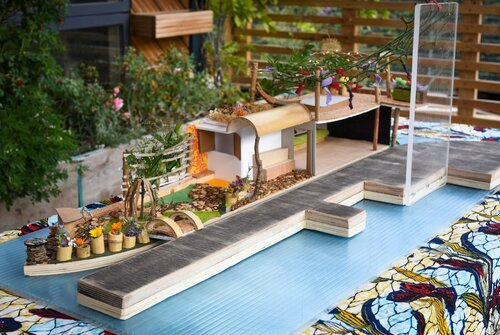
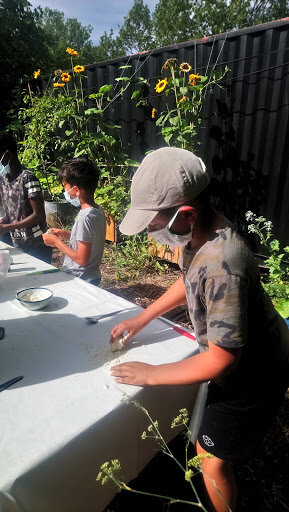
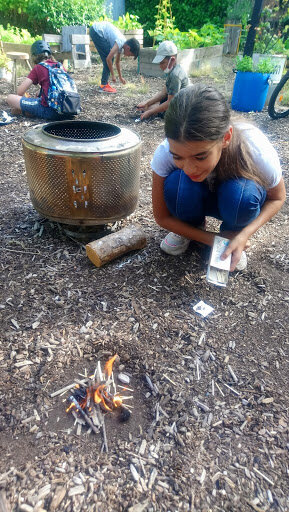

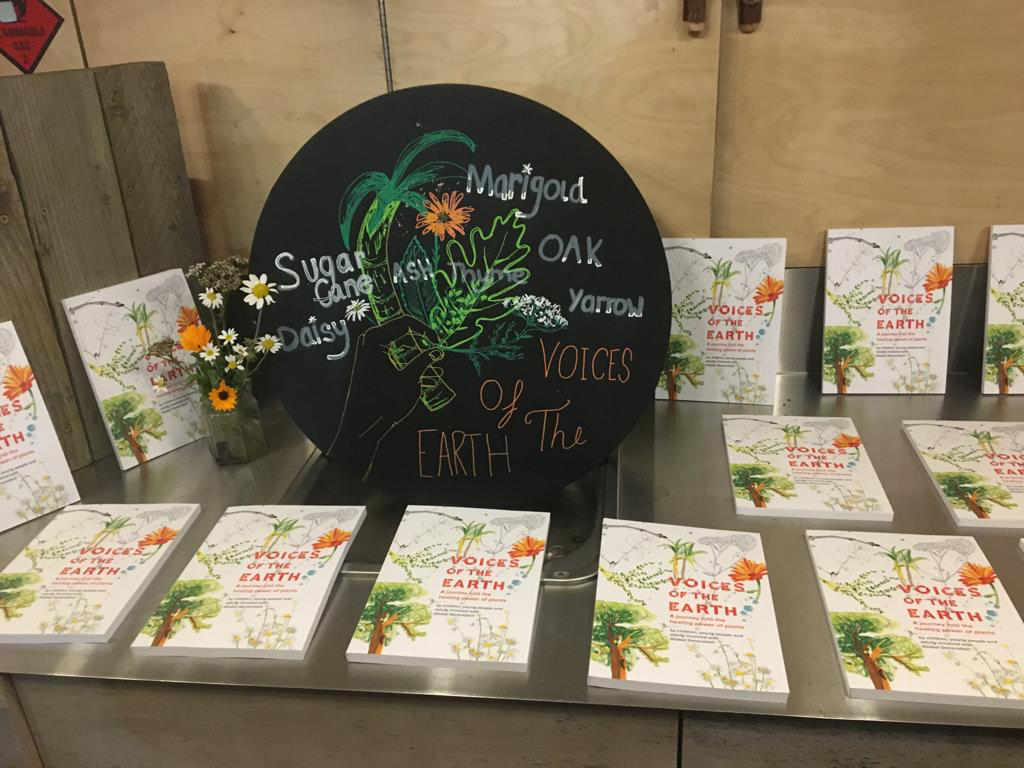
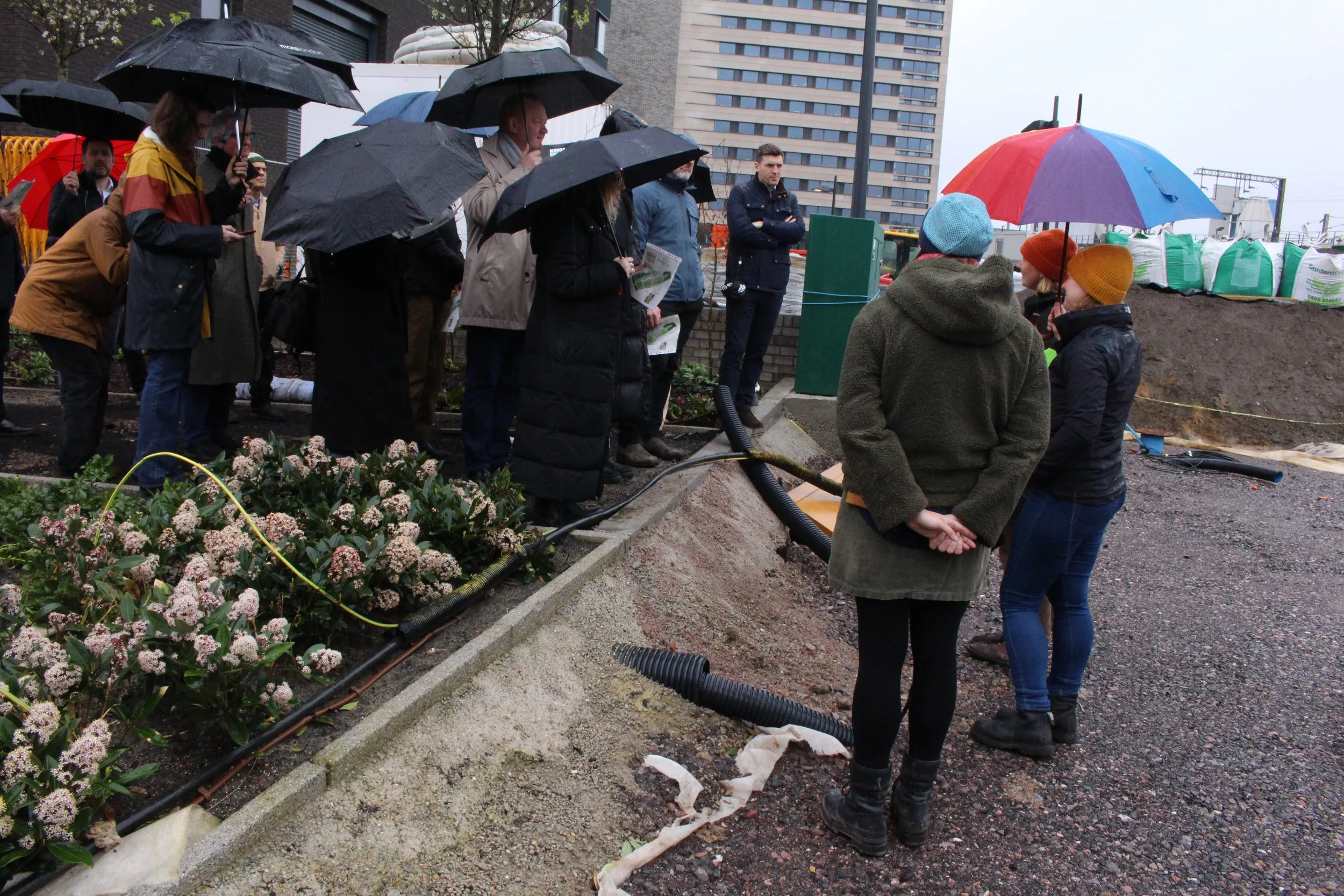

The barge art session hosted by Sarah Pimenta and Pia Jones was reviving.